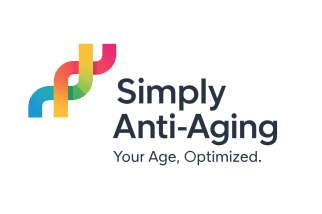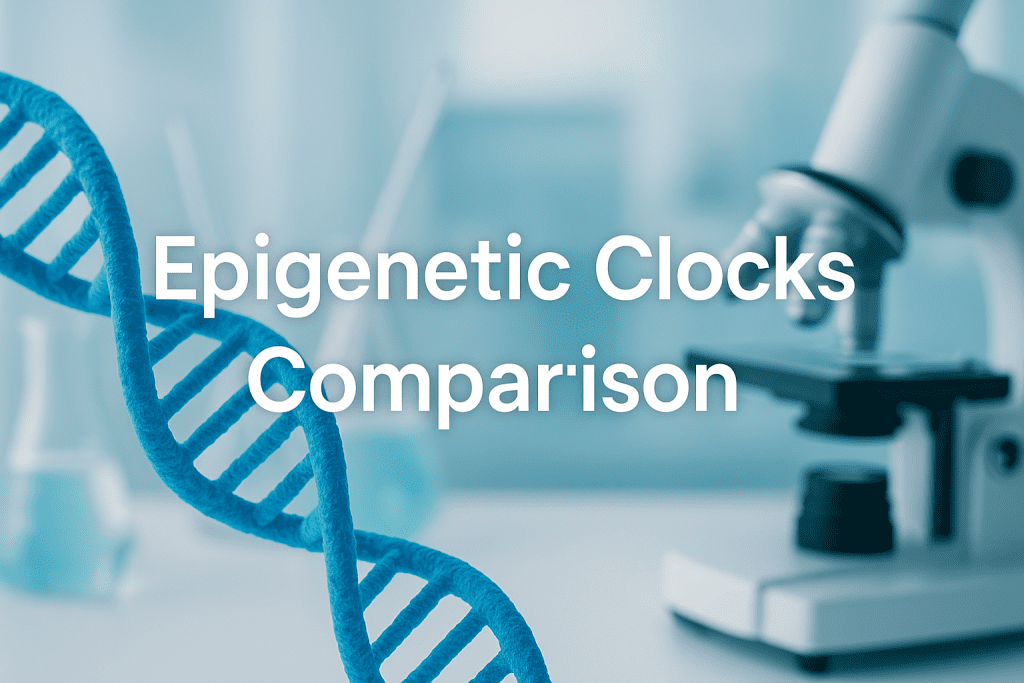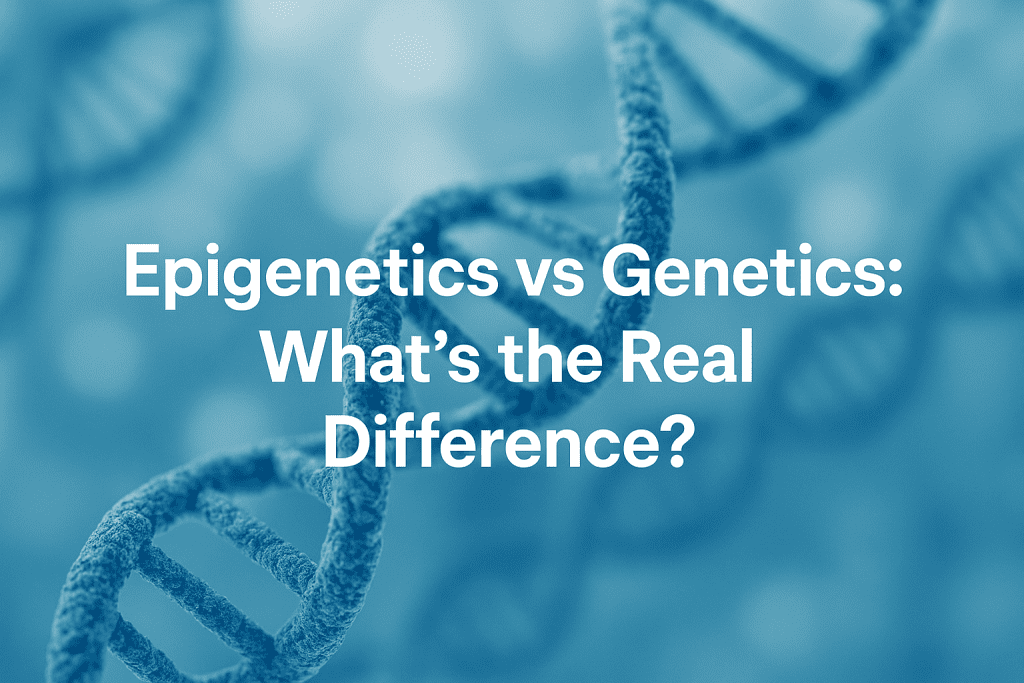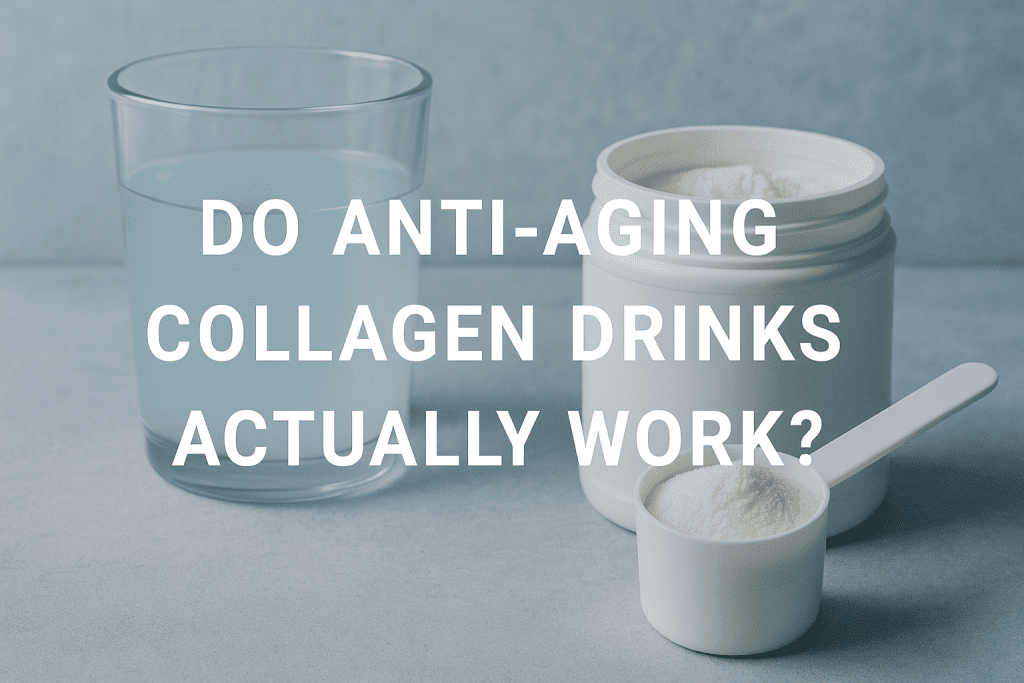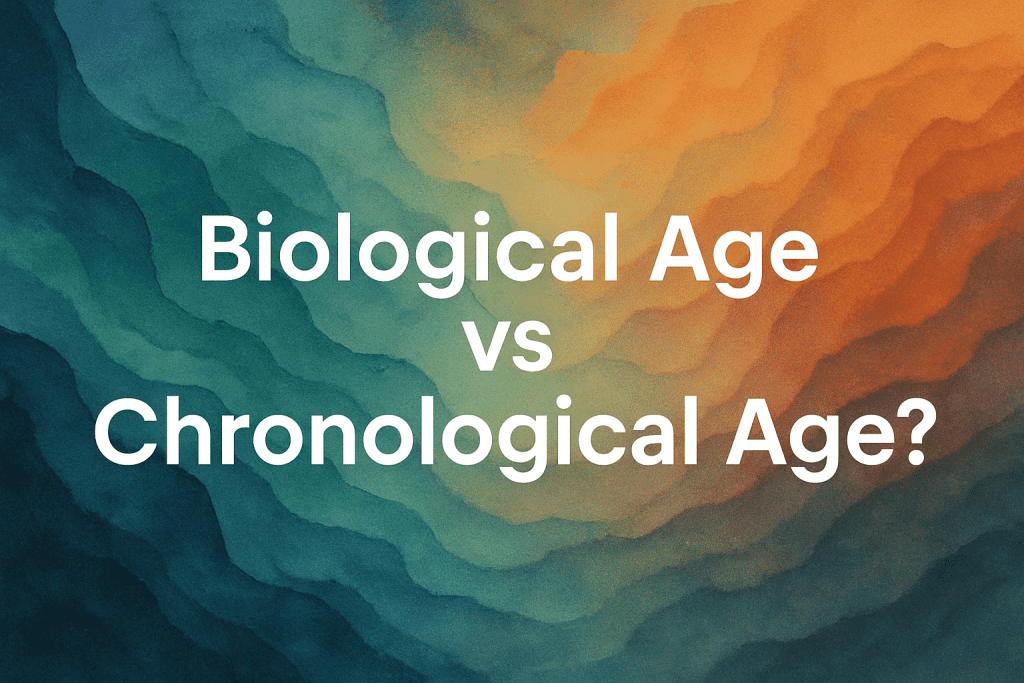
Chronological age is simple: it’s how many years you’ve been alive.
Biological age is different. It reflects how your body is really aging on the inside: your cells, organs, and systems. That number can be higher or lower than your real age, depending on your habits, stress, sleep, and health.
So when we talk about biological age vs chronological age, we’re talking about surface time versus cellular reality. And that difference matters for your energy, disease risk, and lifespan.
What Biological Age Actually Measures
Biological age isn’t a guess. It’s based on hard science. The best tests look at:
- DNA methylation (how your genes are turned on or off)
- Telomere length (protective caps on your DNA that shorten with age)
- Inflammation levels
- Glycan patterns in your immune system
- Metabolic markers like blood sugar and cholesterol
Many of these markers respond to lifestyle. That means you can track real change. If you improve your habits, you might see your biological age go down over time 📉
Why Biological Age Matters More Than Chronological Age
Two people can be the same age on paper. Let’s say both are 45 years old.
One of them exercises, eats well, sleeps deeply, and manages stress. The other is always tired, eats fast food, and skips workouts. On the inside, they’re not aging at the same pace.
Biological age gives you a better view of your future. A younger biological age means stronger immunity, better energy, and lower risk of disease. A higher biological age is often linked to earlier signs of decline 🧠
More and more researchers, doctors, and health experts are using biological age as a better predictor than the calendar.
Can You Reduce Your Biological Age
Yes, and that’s what makes it so exciting.
Studies show that lifestyle changes can reduce biological age by several years. Some people have dropped it by five years or more with the right habits.
What works best:
- Sleep 7 to 9 hours consistently 🛌
- Walk daily or do strength training
- Cut back on sugar and ultra-processed food
- Try cold showers or sauna
- Eat more plants, fish, and healthy fats 🥑
- Practice breathwork or meditation
- Use science-backed supplements like NAD+ or omega-3
You don’t need to do all of it. Even small steps can lead to measurable change in a few months.
How to Measure Your Biological Age
You can now measure biological age at home with easy kits. Most tests use blood or saliva and analyze DNA methylation, telomeres, or immune system changes.
It works like this:
- Order the kit
- Collect your sample (spit or blood)
- Send it back
- Get your results in 2 to 6 weeks
Some kits give you one number. Others include organ age, pace of aging, immune health, and even diet tips.
What If Your Biological Age is Higher Than Expected
Don’t panic. This number is not permanent.
A high biological age is a warning sign. It shows your body may need support. That could be better sleep, less inflammation, or more movement.
Think of it as a signal, not a label. It means now is the time to act.
And the good news? You can change it. Many people see real improvements in just a few months of effort 💪
What Do Doctors and Scientists Say About Biological Age?
While many wellness influencers talk about slowing down aging, top researchers are actually studying how biological age relates to long-term health. Peer-reviewed studies in journals like Nature Aging and Cell show that biological age, especially measured by DNA methylation, can predict your risk of diseases better than your birth age.
For example, researchers at Yale and Duke University have found that a higher biological age is linked to increased risk of cardiovascular disease, cancer, and early death. In contrast, people with a lower biological age often have better resilience, better sleep quality, and stronger immune systems.
Medical institutions now see biological age testing as a tool for preventive health. It’s not just about living longer. It’s about living healthier, for longer. Some clinics already use these tests to track how interventions like diet, sleep, or exercise affect aging at the cellular level.
What is the difference between biological age and chronological age?
Chronological age is simply the number of years since your birth. Biological age reflects how your body is aging at the cellular and molecular level. It takes into account markers like DNA methylation, telomeres, inflammation, and organ function. In short, biological age vs chronological age is the difference between how long you’ve lived and how well your body is holding up.
Why is biological age more important for your health?
Biological age gives a more accurate picture of your current and future health. It has been linked to risks for diseases like heart conditions, Alzheimer’s, diabetes, and even cancer. While chronological age tells you your birth year, biological age can tell you whether you’re aging faster or slower than expected, and what to do about it. This makes it a powerful tool for prevention and longevity planning.
Can you really reverse your biological age?
Yes, you can. Several peer-reviewed studies have shown that lifestyle changes, like improving sleep quality, exercising regularly, reducing sugar intake, managing stress, and using targeted supplements can significantly reduce biological age in just a few months. While you can’t change your chronological age, your biological age is flexible and responsive to healthy habits.
How accurate are biological age tests?
The most accurate biological age tests are based on DNA methylation analysis, often referred to as epigenetic clocks. These tests have been validated in large-scale research at institutions like Harvard, Yale, and Duke. Tests using glycans or blood biomarkers are also reliable but may focus on specific areas like inflammation or immune system aging. Always choose tests backed by published science for better accuracy.
What is the best test to compare biological age vs chronological age?
The best tests clearly show how your biological age compares to your real age and offer insights into why the gap exists. We recommend DNA methylation-based tests for the most comprehensive results. Some of the top-rated options include TruAge, DoNotAge, and MyToolBox Genomics. You can see a full comparison here: Biological Age Test Kit Comparison
